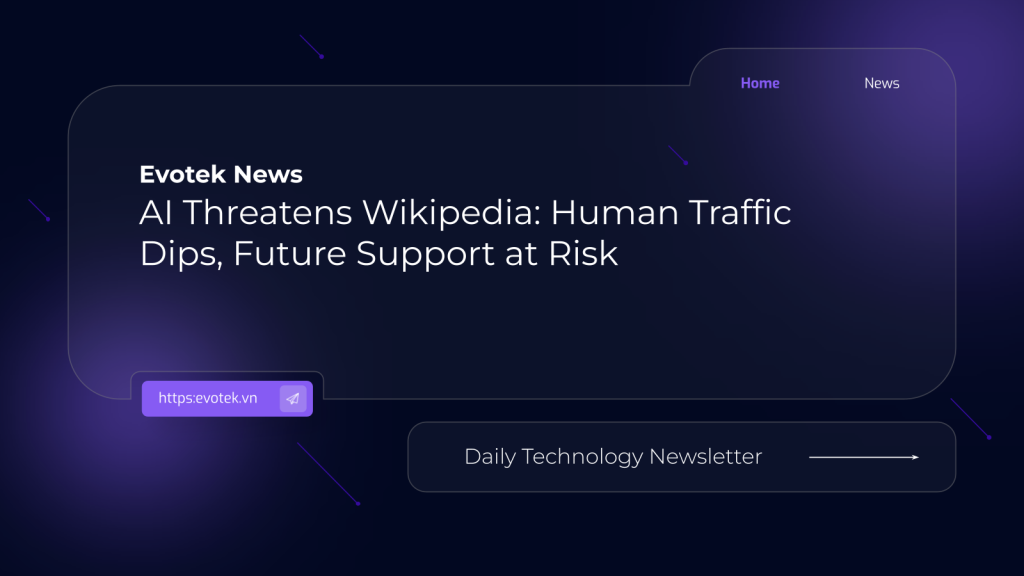The Wikimedia Foundation, the non-profit entity behind the world-renowned online encyclopedia Wikipedia, has raised significant concerns about a noticeable decline in human visitor traffic. This downturn is largely attributed to the proliferation of generative AI chatbots and advanced search engines that now routinely synthesize and present information sourced from Wikipedia without prompting users to visit the original site.
According to the Foundation, this evolving landscape poses a substantial threat to Wikipedia’s long-term sustainability. The core issue lies in the ripple effect of fewer direct human visits. With less engagement on the platform itself, there’s a risk of a reduction in the dedicated volunteer community that tirelessly builds and enriches Wikipedia’s vast content. Furthermore, the decreased traffic could lead to fewer individual donors, whose financial contributions are crucial for supporting the encyclopedia’s operational costs and ongoing development.
As AI models increasingly leverage Wikipedia’s extensive database to answer queries and summarize topics, the vital link between information consumption and direct platform engagement is weakening. Users are getting the knowledge they seek, but the pathway that traditionally sustained Wikipedia’s growth and financial health is being bypassed. This trend highlights a critical challenge for open-source knowledge platforms in the age of artificial intelligence: how to maintain relevance, community participation, and financial viability when their content is widely disseminated by third-party AI systems without direct user interaction.
The situation underscores a unique dilemma: while AI’s ability to quickly process and present information enhances accessibility, it inadvertently starves the very sources it relies upon. For Wikipedia, a project built on collective human effort and generosity, ensuring a vibrant community of contributors and a stable funding base is paramount to its continued mission of providing free, reliable knowledge to the world.

 日本語
日本語 한국어
한국어 Tiếng Việt
Tiếng Việt 简体中文
简体中文